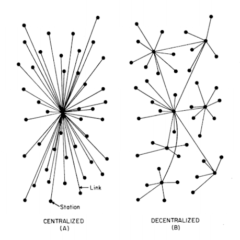Rita Felski, 1991
Category Archives: Antelibrary
“Nothing is so firmly believed as that which we least know” – Montaigne, 1580
Umberto Eco defines the anti-library as a collection of books which, for the most part, remain deliberately unopened. His concept was motivated by the insight that a lot of people predominantly own books which they have read, and therefore, their libraries are of limited use to them. By creating this repository, I wanted to instantiate something parallel, but different. I think it a postmodern, and perhaps an intellectual excess to indulge in the parody of ignorance where ignorance runs amock.
Nevertheless, there is a truth to Eco’s concept; the truth that if we are bereft of some sense of wonder or mystery, the nature of the world is hidden to us. There is so little that we authentically know, and so much that we do not. The sensationalism that our limited attention spans encourage blinds us to the possibilities of rigorous and critical thought. It is a product, say Certeau and Lefebvre, of our ever-expanding working day.
An antelibrary, therefore, aims to toe (in true DFW-metamodernist fashion) the line between idealism and irony. It does this by reaching out to the performative. If the process of reading a book is performative, it means that we cannot extract the objective contents of the book from the reading itself. Behind the reading is nothing: the book is devoid of meaning without a basic structure of interpretation to receive it. Like a play performed without an audience, it will simply echo off black walls. Yet since the interpreting structure is usually consciousness, the reading cannot occur in the absence of a social awareness. In its most basic form, we might think of this as an awareness of the self and of others. But at a higher level, the implication of this is that the very process of going through a book an interpreting it is inseparable from the social structures which form a background to our lives. Whether it be our school or university, our family, workplace, or our friends, these groups generate meanings which we internalise. Although we may play a part in shaping them, because they arise like emergent properties, their exact contents are not attributable to individual parts of the social wholes. That is, we cannot form meanings wholly by ourselves, nor can others form meanings directly for us. The meaning of a book is contained within this grey sphere of dialogue and mutual constitution; it is not a property of its pages.
To that extent, it is nonsensical to compare knowledge to objects, at least if we are talking about the kind of knowledge that can be written down and shared. Physical objects, for one, are far more transient than what in pop culture we typically suppose. They undergo processes, like radioactive decay. Their particles vibrate with thermal energy, and shoot off into space. At the limits of science, the things which hold them together do not seem constant either. The object might, in some sense, be a conceptual illusion; something we use to simplify the world and make it more digestible.
I think the best way to enjoy a text is to let go of the idea that we are accumulating knowledge, and rather let ourselves be taken in by the wonder of new things. With that in mind, I leave my impressions of things I have read and (sometimes) enjoyed here, however ill-informed they may be. I would welcome being corrected or told that my literary gamut is not broad enough.
Major project risk management: Reconciling complexity during delivery with the inside view in planning
Paul Chapman and Cuong Quang, 2021
Return to my Native Land
Aimé Césaire, 1969
The End of History and the Last Man
Francis Fukuyama, 1992
On Practice
Mao Tse-Tung, 1937
The Rationality of Emotion
Ronald de Sousa, 1987
The Rebirth of Classical Political Rationalism
Leo Strauss, 1989
What is Islamic Democracy? The Three Cs of Islamic Governance
M. A. Muqtedar Khan, 2014
The Little Red Book
Mao Tse-Tung, 1964
The Animal That I Therefore Am (More to Follow)
Jacques Derrida, 2002 Derrida takes a look at the relationship between man and animal through discussions of Heidegger, ontology, and nudity. Derrida describes the animal as the “absolute Other”, unable to be conceived of alongside the human like a brother. The animal therefore comes before, follows, and surrounds the human, but is not adjacent toContinue reading “The Animal That I Therefore Am (More to Follow)”
